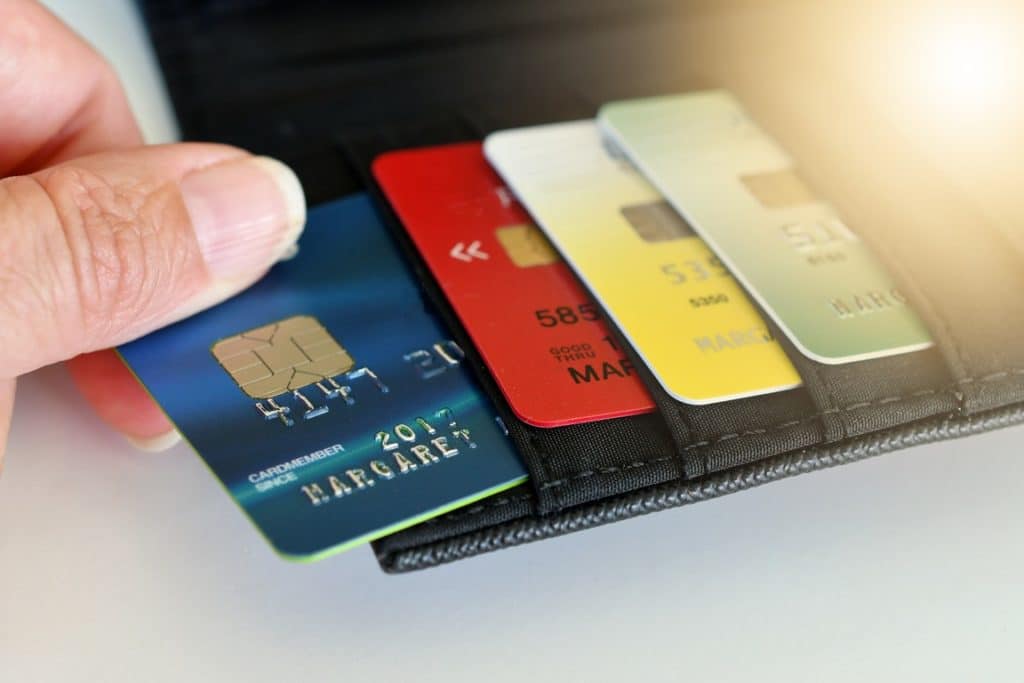How to improve your credit score when you have bad credit

Having a bad credit score can make it very hard to move along in life – it can be more difficult to be approved for personal loans, mortgages and credit cards, or leave you with less favourable terms if you are approved. Luckily, you aren’t stuck with a bad credit score forever, as with the right knowledge you can take steps to improve your credit score and get back on track.
The first step to improving your credit score in New Zealand is understanding how it works, and what factors can lead to good or bad scores. Learning about credit scores can help you to take control of your financial situation and secure better credit in future.
What are credit scores and credit reports?
A credit score is a rating that indicates how credit-worthy you are. It’s usually a number from 0-1000 (although some scoring systems may use other boundaries) and the higher your score, the more credit-worthy you are.
Being more credit-worthy doesn’t just mean it’s easier to apply for loans and credit cards – it can also help you get a better deal with other companies, such as utilities providers, insurers, and phone companies. On the other hand, a bad credit score will leave you worse off when dealing with these New Zealand companies.
A credit report is the key to understanding your credit score. Credit reports show a full record of your payment history for credit cards, mortgages, car finance and hire purchases, as well as utilities payments in some cases. This can help to identify issues leading to a bad credit score. For example, your credit report may show outstanding or late repayments to credit card companies.

What constitutes bad credit?
Bad credit refers to a low credit score. Different credit score providers use different scales to determine credit quality. As an example, Equifax (one of the major credit score providers) rates scores of 833-1200 as excellent, 726-832 as very good, 622-725 as average, 510-621 as fair, and below 509 as poor.
Bad credit is usually a result of not managing credit effectively – for example, making late payments, not meeting minimum repayment levels or exceeding credit limits. These behaviours signal to credit providers and other companies that you can’t be relied upon to pay back what you owe them on time, which is reflected in your credit score and can lead to them being less willing to provide you with their services.
Bad credit can also be a result of “thin” credit history. A thin credit history means that there isn’t enough information to create an accurate credit score for you; for example, if you’ve rarely or never taken out a credit card or loan, or if you don’t use your credit card on a regular basis.
A thin credit history makes it harder for credit providers to gauge how well you handle your money, which means they may be more wary of lending you money or giving you a credit card. One easy way to solve a thin credit file is to apply for a secured credit card, which has some extra limitations compared to ordinary cards but is designed to help users start building up a credit history.
How does bad credit impact your financial decisions?
Bad credit can be a major limitation when it comes to your financial options. For example, when trying to take out loans bad credit can be a major roadblock – companies will be less likely to lend to you, or will impose stricter conditions such as higher interest rates or stricter repayment schedules.
Often, a low credit score means your options are restricted to bad credit loans specifically designed for people who can’t get loans elsewhere. However, these aren’t a great idea for improving your credit score – they usually have sky-high interest rates, hidden application and management fees, and other strict terms which can often make your financial and credit situation even worse in the long run.
Low credit scores will also remove opportunities to get finance in future. For example, it’s much harder to get a mortgage approved with a bad credit score, which can place a major limit on your life goals.
On the other hand, having a good credit score gives you a lot more financial freedom in New Zealand. Not only will credit providers be far more willing to offer their services if you have a good credit score, they will also offer much better terms such as lower interest rates or higher credit limits. What’s more, it’s also possible to use a high credit score as leverage to negotiate for better terms, as you can prove to the provider that you will be a reliable customer.
People with bad credit scores, meanwhile, usually have to settle with whatever they can get from credit providers. This may seem like something of a catch-22 – a bad credit score leaves you with worse credit options which are harder to pay off, leaving you stuck with a bad credit score – but fortunately, there are ways to improve your credit score and gain more financial freedom.

How to improve your credit score
There are several ways you can improve your credit score and start to take more control of your financial options. Your credit score won’t improve overnight, but these steps will pay off over time and help you to get your feet back on the credit score ladder.
Make regular payments
If you have any outstanding debts, then paying them off is a solid first step to improving your credit score. You need to show credit providers that you are actively working to pay off previous loans to reduce your overall debt in order to demonstrate that they can trust you to pay them back as well if they approve your application.
Conversely, if you make no effort to pay off your current debts and bills, then credit providers are likely to assume that you won’t make any effort to pay them back either.
Get a credit card and make regular payments
Improving your credit score is all about demonstrating you can be trusted to make repayments on time and in full – so a good place to start is doing exactly that. Take out a credit card and use it for regular purchases which you can easily afford to pay off each month in order to build up a credit history of reliable repayments.
Close credit accounts you don’t use
While it’s important to avoid a thin credit history, there’s no point having credit cards just for the sake of adding to your credit file. In fact, this may do more harm than good – having multiple credit accounts that you don’t use may give the impression that you don’t organise your finances well.
Closing inactive accounts will make your finances easier to manage, and will demonstrate to credit providers that you are well-organised. It’s also easier to ensure you’re using your credit accounts regularly if you only have a couple to manage, rather than letting multiple accounts gather dust.

Check your credit file
Applying for a credit report in New Zealand can help you to get a fuller picture of your credit history and identify exactly what problems you need to rectify. Having an idea of what issues have led to a bad credit score can help you to address them more easily.
In some instances, your bad credit may be down to an inaccuracy in your credit file. If your credit report contains mistakes or inaccuracies that aren’t your fault, you can have them amended, which may help to improve your credit score if the mistakes appeared to illustrate a poor credit history.
Demonstrate regular bill paying
Your credit score doesn’t necessarily stick to credit – it may also take into account your history of paying bills to utilities companies such as gas, electric or broadband providers. If you’ve missed payments to these companies in the past, make sure you pay them on or before the due date in future. This demonstrates financial responsibility and will help to boost your credit score over time.

Avoid making too many credit applications
If you have bad credit or a thin credit history, it might be tempting to take out multiple credit cards or loans in order to start building a positive credit history of timely repayments. However, this can just make things worse – applying for multiple lines of credit in a short time frame can ring alarm bells with credit providers, who may see it as a sign of financial desperation to pay off mounting debts.
This can be made worse if you’re rejected for credit multiple times in a short period, as this will further lower your credit score. You should apply for credit sparingly, and try to be sure that you will actually be approved before you do so.
Improving your credit score may take a while and require a bit of hard work, but it’s more than worth it. Moving away from bad credit will help you to secure better terms on future loans and credit applications, allowing you to build financial security and plan for the future knowing you have reliable credit options to make use of.



